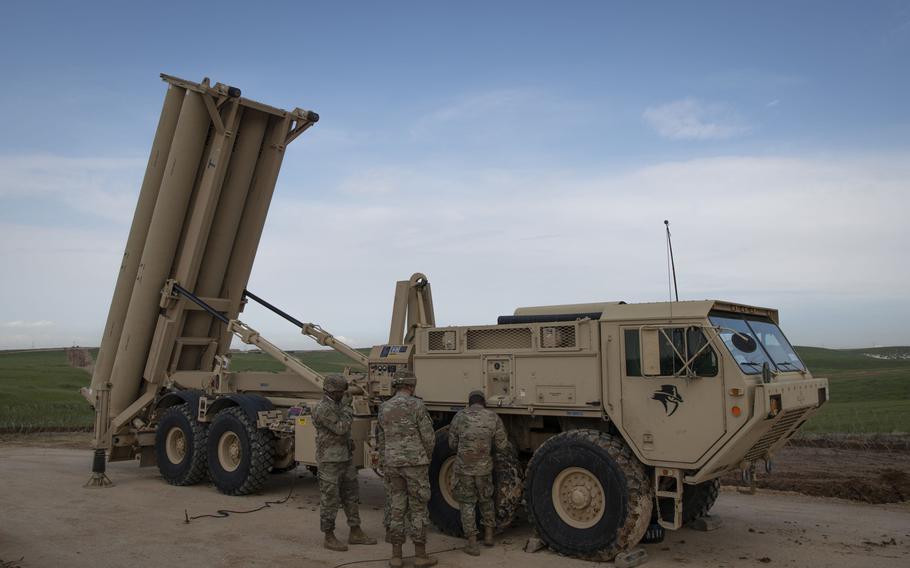
U.S. Army soldiers from the 11th Air Defense Artillery Brigade perform equipment checks on a Terminal High Altitude Area Defense launching station in Israel, March 4, 2019. Israel now falls under the responsibility of U.S. Central Command, taking over a job that for decades was the task of U.S. European Command, The Wall Street Journal reported Jan. 15, 2021. (Cory D. Payne/U.S. Army)
STUTTGART, Germany — U.S. Central Command is now responsible for coordinating military activities with Israel, taking over a job that for decades was the task of U.S. European Command, The Wall Street Journal reported.
President Donald Trump ordered the shift during the last days of his administration, the report said Thursday, citing unnamed U.S. officials.
The switch was made as relations between Israel and multiple countries in the Muslim world have improved during the past year.
In August, Bahrain and the United Arab Emirates normalized relations with Israel, marking a major diplomatic step forward. In August, Sudan recognized the Jewish state, and in December Morocco established diplomatic ties with Israel.
That could be one of the justifications for adjusting how the military coordinates efforts in the region.
Some security observers have long believed that it was a more natural fit for Israel to fall under CENTCOM responsibility since Iran is the main security threat in the area. However, the adversarial relationship between Israel and U.S. partners in the Gulf region was seen as problematic for U.S. Central Command officials.
There were indications in recent years that the military was moving toward having CENTCOM play a bigger role in Israel. In 2018, now-retired Gen. Joseph Votel was the first CENTCOM chief to make an official visit to Israel. In 2019, current boss Gen. Kenneth McKenzie did the same.
It’s not clear whether the incoming Biden administration will uphold the change in military responsibility.
For EUCOM, Israel has been a key focus over the years. The Stuttgart, Germany-based command coordinated complex training missions with Israel’s forces, including the biannual Juniper Cobra missile defense exercise.
But as EUCOM focuses more on its traditional role in countering Russia, shifting Israel to CENTCOM enables the Pentagon to incorporate it more into its Middle East strategy, analysts say.
“Putting Israel in CENTCOM’s (area) would smooth the way for the Pentagon to utilize Israel more for regional operations, including by pre-positioning precision-guided munitions and other much-needed weaponry for the U.S., Israeli and possibly partner Arab forces,” retired Gen. Charles Wald, a former EUCOM deputy commander, wrote in a November analysis for Real Clear Defense.
EUCOM’s loss of Israel is part of a shrinking geographic area of responsibility that began in 2007 with the formation of Africa Command. Before the emergence of AFRICOM, EUCOM also oversaw military activities across most of the African continent.
vandiver.john@stripes.com Twitter: @john_vandiver